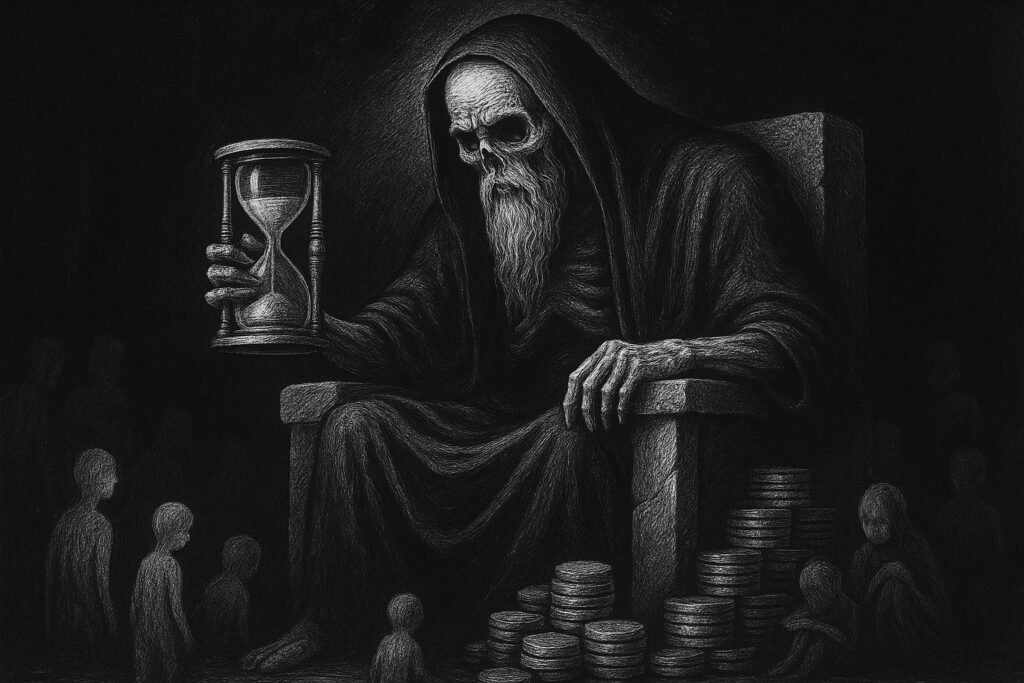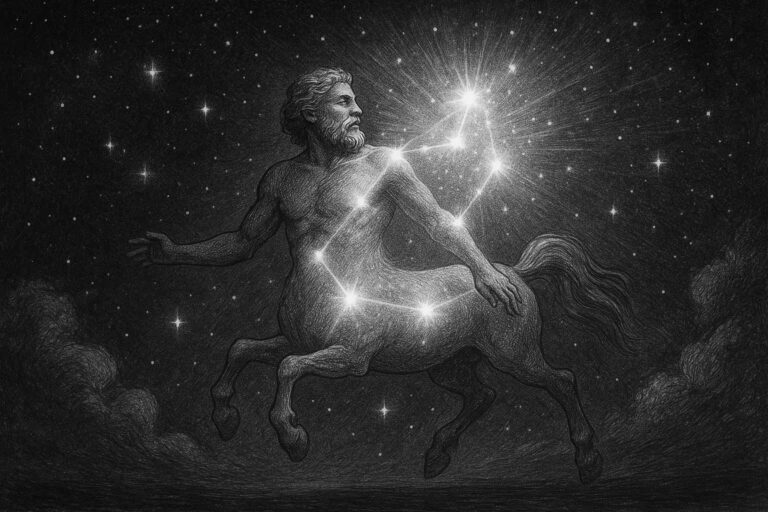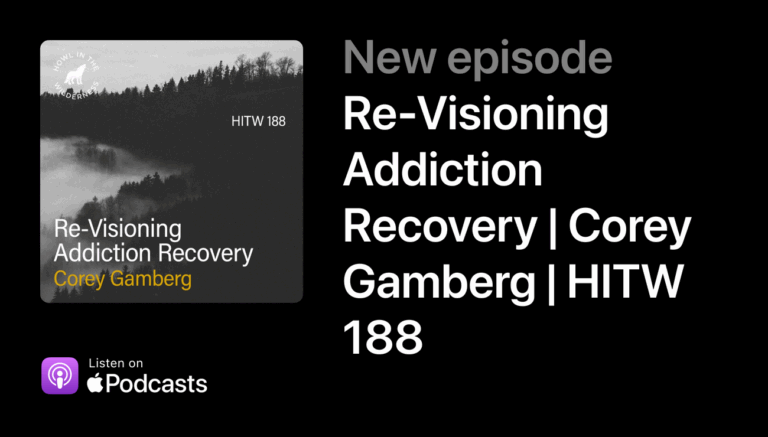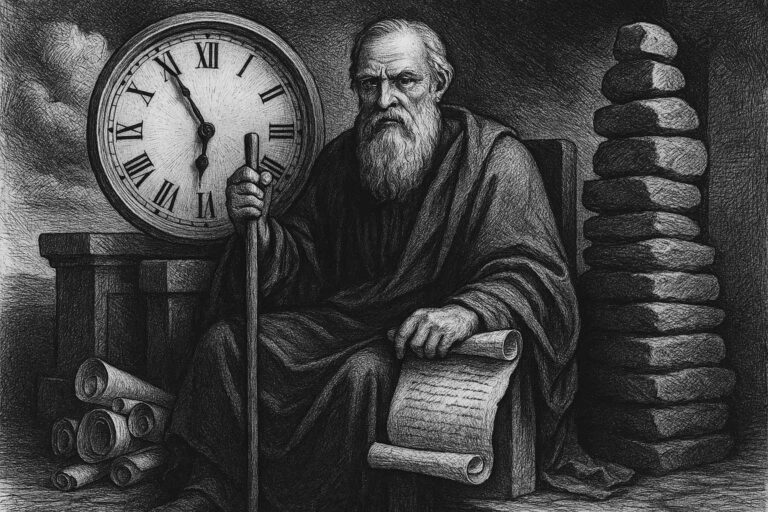In the ancient stories, before Zeus, long before the gods of Olympus reigned, there was Cronus.
Cronus ruled the cosmos with a terrible certainty. He was the god of time—not the sacred, opportune moments that change a life, but the grinding, inescapable time that devours all things. Fearing a prophecy that his children would overthrow him, he swallowed each one whole. One by one, they disappeared into the darkness of their father’s stomach. He called it “safety”. He called it “order”. He called it “protection”. But what it was, was control.
And this is where we begin.
Because Cronus did not die in myth, none of the gods did, they live on. Not in temples or altars, but in systems, in rules, in the mindsets that mistake containment for healing. He lives, too, in parts of the recovery world—in that mantra that sounds so humble, yet hides an empire of fear:
“Recovery is forever.”
It sounds wise, and even kind. But listen again. Recovery forever—not healing, not transformation, not return. Forever recovering. Forever not there yet. Forever bound to the identity of the one version of you that once fell.
In this model, time becomes the god. “Clean time,” “sobriety calendars,” “how long do you have?”—these are the new liturgies. Power is measured not by insight, depth, or change, but by months, and years stacked like stones. And relapse? It is the heresy that resets the clock – the fall that proves Cronus right; you cannot be trusted, you must remain under watch.
This is not a critique of discipline, or the sacredness of structure in early recovery. These are Saturnian virtues which are necessary, anchoring, and formative. But when Saturn is never dethroned, when Cronus becomes the king of the soul, we no longer live, but remain unborn.
Just as Cronus feared the birth of his children, some systems of recovery fear the birth of the self, or the return to soul. They fear transformation that would render their power unnecessary, and defame the notion that there is a recovery that leads beyond recovery.
But in the myth, one child escapes- Zeus. And one day he returns, not to remain in the father’s house, but to end his reign.
This is not rebellion for its own sake. This is individuation.
To escape Cronus is not to reject recovery. It is to outgrow its early form. It is to allow that what began as structure may one day become shackle. It is to recognize that soul does not move in straight lines, and that healing is not a countdown, but a spiral.
In the Greek tradition, there are two words for time: Chronos — linear, devouring, measured time. Kairos — ripened, opportune, soul-time.
Cronus is Chronos. He tracks your days, the slips, the failures, your progress. Kairos is the god we forgot, the one who governs thresholds, awakenings, descents, and returns. The time of soul, not clock…
Depth Recovery is a recovery of Kairos. It does not reject time, but it refuses to be ruled by it. It calls for a recovery of becoming, not prescription. A return to the soul’s logic, not the system’s ledger. A willingness to say:
No longer will I live in the belly of the father. No longer will I be merely recovering.
I will become…




